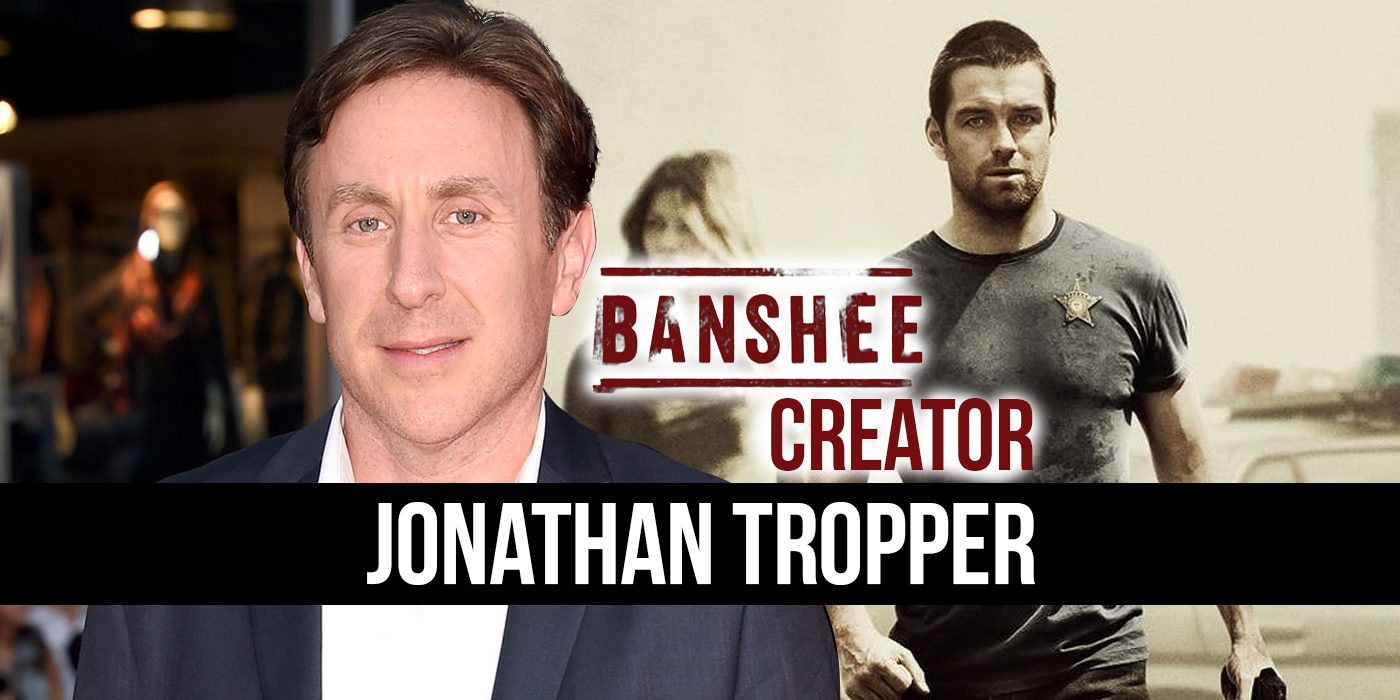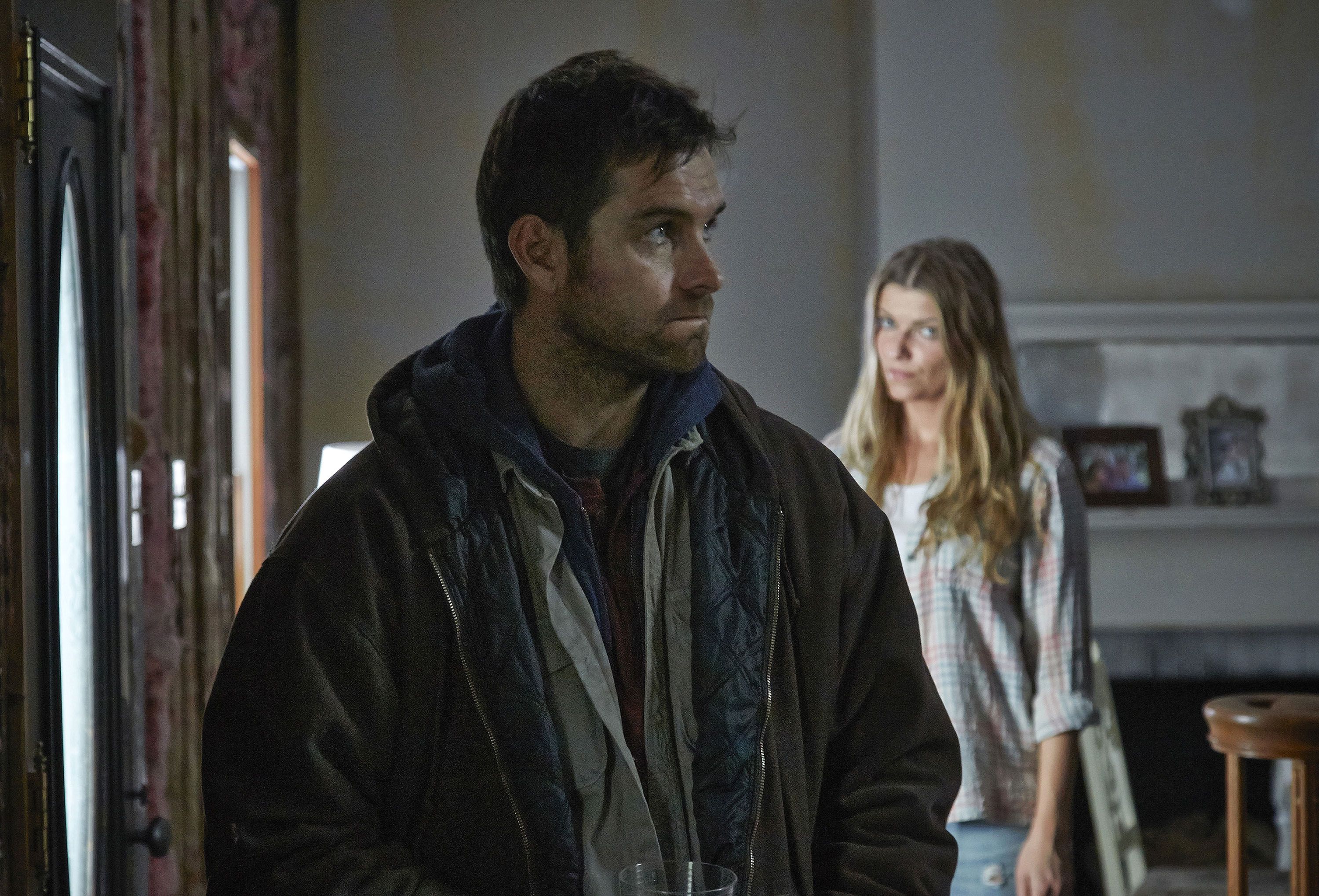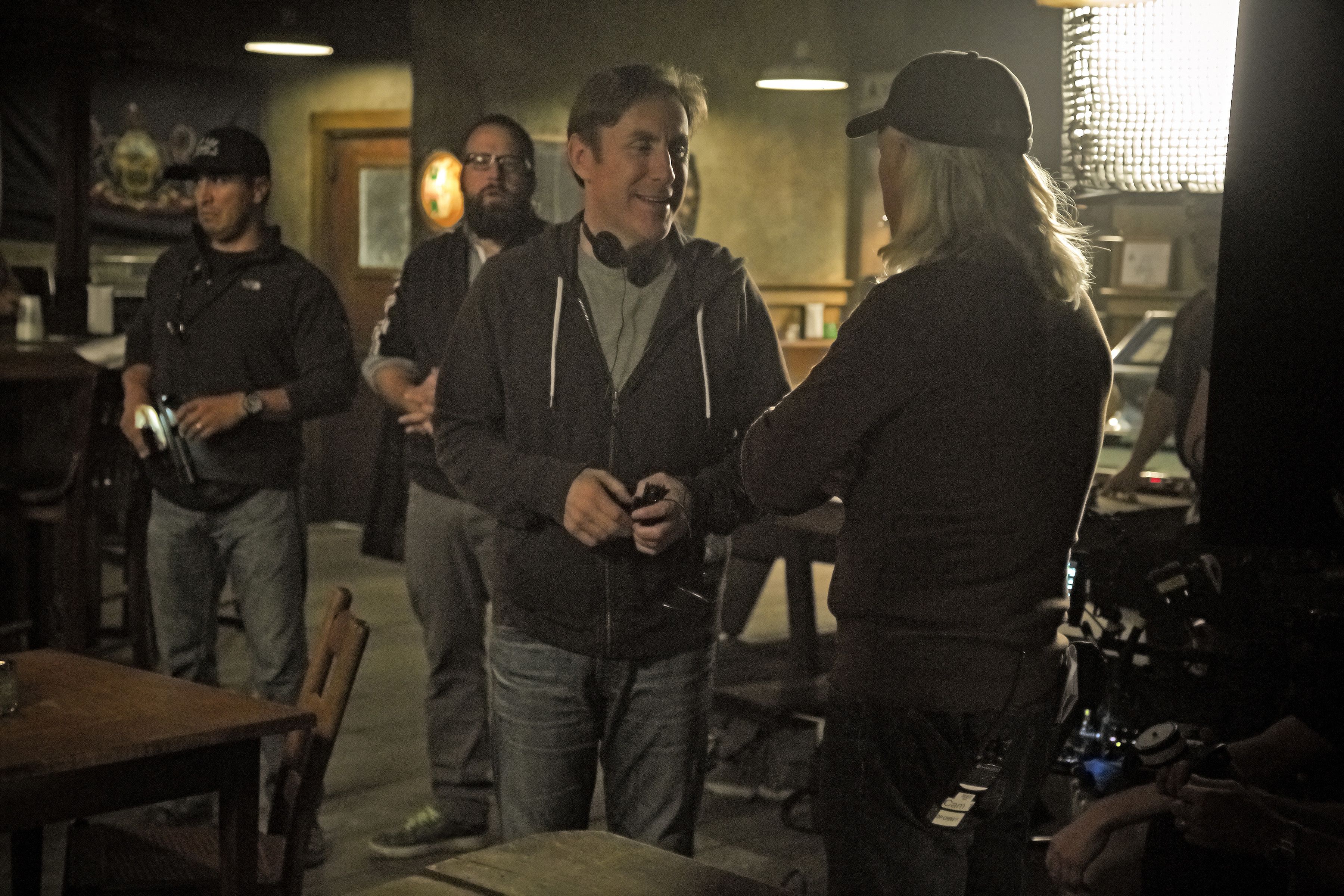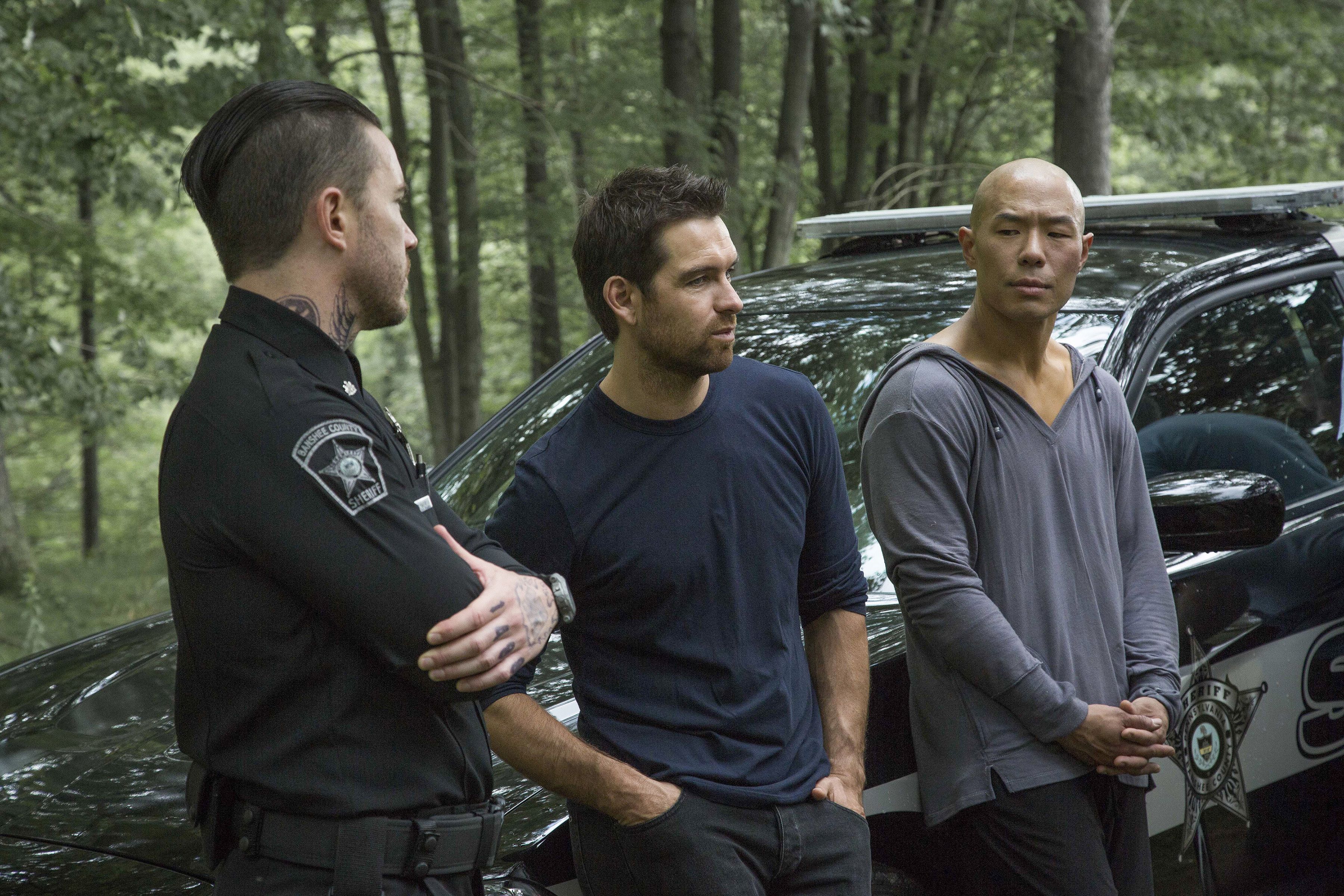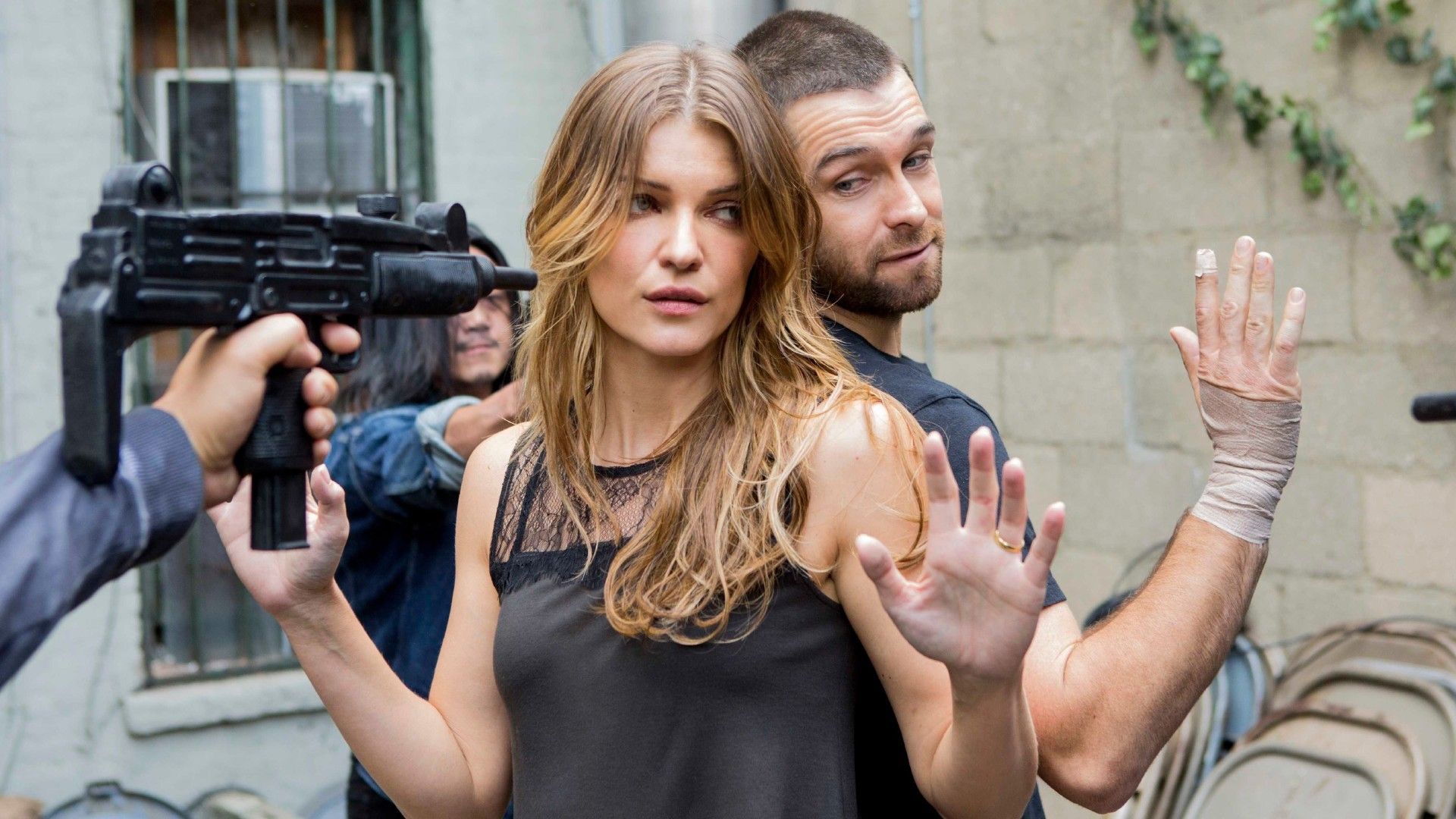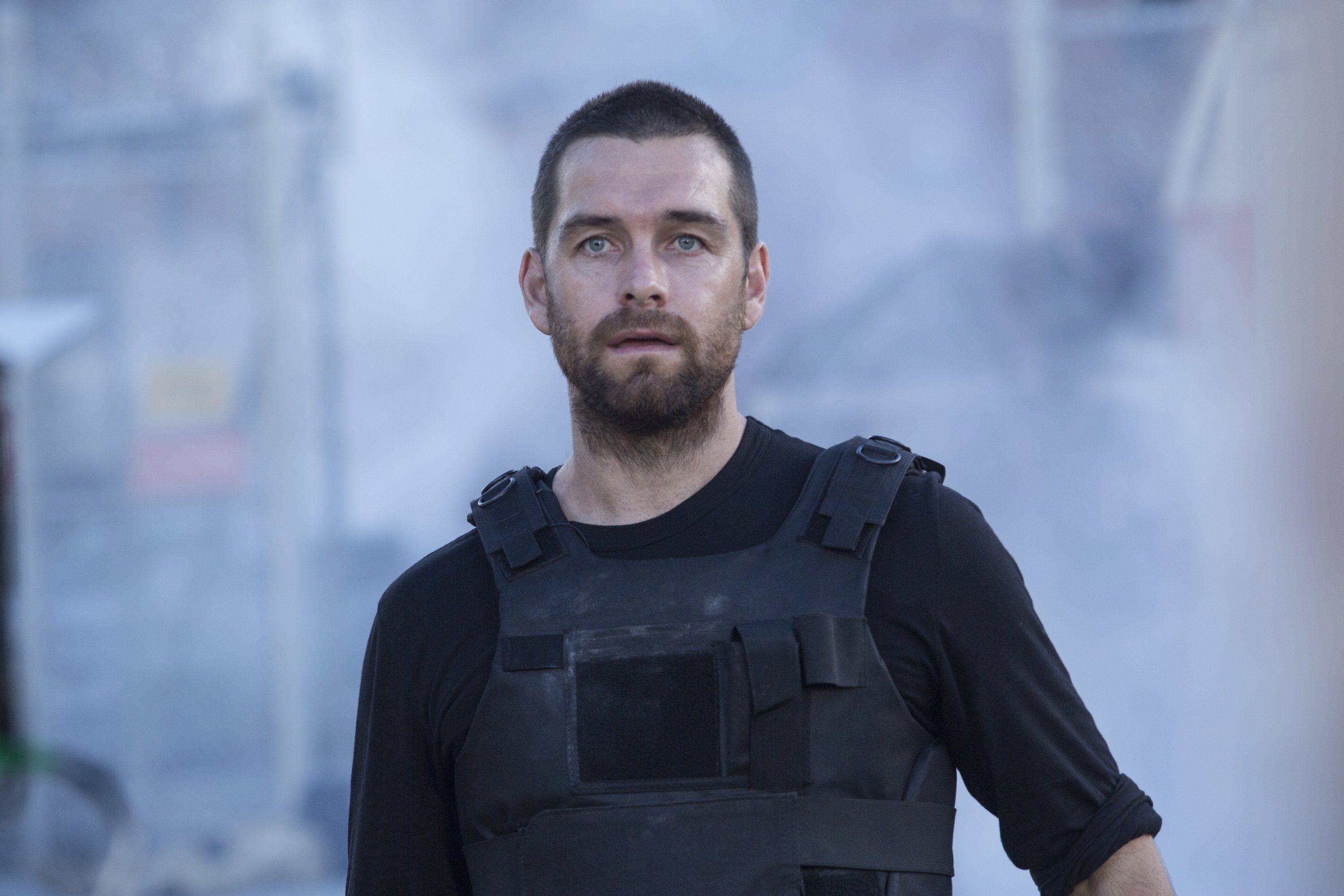The Cinemax action-drama series Banshee is a terrific show with a fantastically talented cast, badass action, and a passionate fan base, and now the opportunity to get even more eyeballs on it with its streaming availability at HBO Max. If you haven’t had a chance to check it out before now, you’re in for a wild ride. If you have already seen it, then it’s worth binging the journey again. In Banshee, an ex-con assumes the identity of a murdered sheriff in the small town of Banshee, Pennsylvania and finds trouble everywhere he goes. The series stars Antony Starr, Ivana Milicevic, Hoon Lee, Frankie Faison, Matt Servitto, Trieste Kelly Dunn, Ulrich Thomsen, Tom Pelphrey, and Lili Simmons.
With the four seasons of Banshee now available to binge at HBO Max, Collider got the opportunity to chat 1-on-1 with co-creator/writer/executive producer Jonathan Tropper about how Banshee was the first thing he’d ever produced, what he learned on the job, realizing that his original plan for the series ending needed to change, how the fight scenes influenced what he went on to do with Warrior, and how emotional it was to say goodbye to these characters and this world.
COLLIDER: If you had done this series for a streaming site originally, do you think you would have done anything differently, knowing that people would be binging a whole season at a time?
JONATHAN TROPPER: It’s weird, when we started Banshee, there were no streaming services, so we were very much about giving people a reason to tune in next week. To get people to binge your show, it’s the same thing. You have to do that thing that makes them want to start the next episode. So, I don’t think we would have necessarily done anything differently. We always took the approach that it was a pulpy, fun action show and we needed to end every episode with the kind of bang that makes you want to come back for more.
It will be interesting to see how people react to the show when they can not only watch an entire season, but the entire series at once.
TROPPER: I’m a fan of that. One of my biggest regrets about what was happening with Cinemax was that we had four seasons of what I felt was an incredibly binge-able show and people just didn’t have the opportunity to see it. Banshee really is a show that works for binging. You can do a season at a time and get really lost in it.
When you set out to make Banshee, what was your plan for the show? What were you looking to do with the storytelling? What were you hoping that it would be and did you expect it to end up how it ultimately did?
TROPPER: Banshee was the first thing I ever had produced, TV or film. I had a very clear idea. It started from the notion that I wanted to put something on TV that was the kind of thing I always looked for when I was late night cable surfing. But I was usually looking for a movie because TV shows did do it. I was always late night cable surfing for action movies. I was a big fan of straight to video action movies because you could rarely find a theatrical action movie on late night cable, back then. I was looking for something that would my satisfy my action jones while at the same time, because I’m a novelist, I also wanted it to have more of a literary bent and was very character driven with a large amount of characters and an intertwined plot. I think it did pretty much come out the way I had hoped. Visually, I worked with people who were much better than me at figuring out what the visuals were. I don’t know if I pictured in my head, visually, the aesthetic of it. That really gritty, brown aesthetic of Banshee came from a combination of Greg Yaitanes, our producing director, and Chris Faloona, our director of photography. I think those guys figured out the look and patina of the show, but in terms of the tone of it, the style of it, and the fact that you could have fun and action and adventure while still taking your characters very seriously, that was my goal.
Are you someone who also went into the show knowing how it would end, from the beginning?
TROPPER: No, I had a very different idea of how it would end and that only changed as we were finishing up the third season. I was pretty sure I knew how it would end, and we made a real pivot away from that quickly.
Different in what way?
TROPPER: I always felt that the Lucas Hood story was a tragedy and I always felt that ultimately his redemption lay in sacrifice. What I came to understand, over the course of writing the show, was that this guy who doesn’t have a name, who we called Lucas Hood, went to prison when he was so young that he never really became anyone and the minute he got out of jail, he assumed another fake identity. He never had a chance to become anyone, so I realized the end of the story was less about dying and sacrifice, and more about him finally coming to the end of his journey as nobody and setting off to become the person that he is. It was about him finding his own identity instead of the non-identity of a prisoner and then this assumed identity. It was about him finally becoming liberated to find his identity. That really changed the way we wrapped up the series.
One of the stand-out things about Banshee was the incredible cast that you assembled. Antony Starr has gone on to get attention for The Boys, Tom Pelphrey is getting attention for the last season of Ozark, and you created a character like Job, who I think is truly one of the best characters, with Hoon Lee’s performance. Did you realize the magic that your cast was bringing to this while you were making the show? Is that something that you could really only appreciate later with time and distance, or was it something that you saw while it was happening?
TROPPER: I was really new to television, so I had no frame of reference. A number of the actors on the show, who I’m still close to today, like Antony, Matt Servitto and Ivana [Milicevic], were saying to me, in the moment, that this was something really special. I had no frame of reference because I had not worked in television before, but they felt it and the executives at the network felt it. In the first season of Banshee, I was really being stewarded by Greg. It was all very new to me, so I didn’t have a frame of reference. I knew that I really liked what was happening on screen and I really loved the way the actors were inhabiting their characters, but I had no sense of the alchemy of it until Season 2.
Was there any one character that was most difficult to cast?
TROPPER: Lucas Hood was damn near impossible. We ended up finding Antony in New Zealand. We were all over the world looking for Lucas Hood. We were getting every straight hero type coming in and we were looking for that combination of dangerous and vulnerable and nasty, but also with a little boy quality and, in the end, that devil may care attitude. We were actually gonna have to push, if we didn’t find someone. It took a long time to find Lucas Hood. And then, Job was really hard to cast. It turned out that Hoon [Lee] was the first audition we looked at and said, “We like this guy, and now we’ve gotta look more.” And then, we went pretty much through the whole world of casting and came back to him. He was the only one. We loved him from the beginning, but we had to look at a lot of other people, and then we came back to him. Job was a hard one to bring to life, as well.
Job was such an interesting character because it feels like you held back on him and you kept him very mysterious. Was that always the plan with that character, or were you originally going to give us more and then decided that it felt better to pull back on him?
TROPPER: In talking to Hoon about it a lot, he also felt like less was more with that character. Job was our magic bullet. We could use him to finesse any plot points. He could get us into whatever we needed to get into. He was the hacker. He was also somebody who really didn’t integrate with most of the cast. While we really enjoyed developing the friendship between him and Lucas, and also between him and Sugar, there was a sense that we had to protect the character and not let him get mainstreamed into the show. What I wanted from Job was that every time he showed up on screen, everyone was really happy to see him.
What do you remember about shooting the first episode of the series, compared to shooting the last episode of the series? Did it feel very different for you?
TROPPER: Yeah. For me, it was like a graduation. My skills as a writer and a producer of television were developed over those four seasons. We didn’t actually shoot the pilot first. We shot Episode 4 first. Episode 4 was like our pilot and I remember the excitement of being down there and seeing the crew assembled and the cast assembled. Being on set that first day, the first thing we shot, we were in a ravine in this stream where Lucas Hood was fighting with the Moody brothers. That was the first frame of television I ever shot, so I paid tremendous attention to everything that was happening and I was really learning how TV production works. Weirdly, our first day was a monster. We were doing a car crash with a police car flipping down into a ravine, and then we were doing a one on four fight, thigh deep in water. It was cold and Antony got hit by an accidental head butt that split his lip open and he needed stitches. It was a crazy first day of television, so I always remember that. And then, when we finished Banshee, it was just this sense that we had all been through a really long war together. It was like the last day of high school, saying goodbye to people who had become your family, feeling a real affection for the show and for the stories we had told, and feeling like we had all grown up together.
You did a lot of action scenes and fight scenes on this show, and they were so unlike other action and fight scenes I’d seen before. What did you learn from doing the action and the fights on this series, and did that really influence what you then wanted to do on Warrior?
TROPPER: Oh, one hundred percent. There were a few things I learned. First of all, the thing that we really steered away from, I think to great effect, was the polished slickness of movie fights. We wanted to get to a level of what I now refer to as consequential violence. It’s a double-edged sword because, on the one hand, we allowed Lucas Hood to take a beating that no man should be able to walk away from, over and over again. Obviously, we were taking some creative liberties. But at the same time, we really made the fighting messy and violent and you felt the pain of it. That, to us, was really important. These fights were not slick, pretty fight. These fights were messy, angry, violent, painful fights. And then, we treated Warrior the same way. Especially with martial arts choreography, there is a tendency to get very artistic and very balletic and very cute. We made sure, from frame one, to stay away from all of that and keep the action very consequential. When people get hit, you have to feel their pain. Even with Kung Fu fights, we had to make them messy to be believable and to not take you out of it. That was something that I learned over the four years of doing Banshee. And then, the other thing was just how far you could take something and how far you could push something, and learning to be really ambitious about how you want it to stage fights and shoot fights and how big you wanted those fights to get. The ambition we had on Banshee, far exceeded our budget and far exceeded the physical abilities of any one cast member, but we found ways to do it.
You once told me that there were a handful of stories that you dreamed up in the writers’ room that you never got to tell on Banshee, starting in Season 1, just because your plan was so ambitious that you couldn’t fit it all in. Are there still things that you wish you would have had the chance to tell that you couldn’t because of time, or do you forget about those things once you now see what the series became as a whole?
TROPPER: You do let them go because now there’s four seasons of Banshee and that book was closed. I don’t really spend much time dwelling on stories we would have liked to tell, but didn’t. At the time, there were certainly worlds we wanted to explore more deeply. I think we could’ve made a whole show about Rebecca. And I would have loved to spend a little more time on watching Deva come of age, with her whole screwed up heritage. There’s always stuff you could have done, but with time, the work becomes its own canonized thing and you don’t really think about that anymore, even if you remember all of the plot lines you never explored.
Are you someone who can look at Banshee as a whole and be proud of the work that you’ve accomplished with it, or are you someone who still sees a list of flaws that we don’t see and would likely never even know about?
TROPPER: It’s funny, when it’s fresh, I always see the holes. When you’ve spent all that time in post-production, laboring over each scene and trying to find the best takes and the best angles and the best way to sell certain things, and then it comes out. Since it’s been on HBO Max, I’ve watched the first two episodes and, for the most part, I think enough time has passed that I don’t see that anymore. Every once in awhile, it’ll come into a certain scene and I’ll remember what the scene in my head in its purest form was supposed to be, and how we ended up having to shoot it here instead of there, and how we had to do this instead of that, and Antony was injured that day, so we couldn’t do this. You start to remember those things, but it’s a lot less immediate now. Now I’m watching it and it’s almost like looking at old pictures of yourself and old home videos. I’m remembering what it felt like to be there making this and I’m also watching with great wonder, in those early episodes, how we were still finding our tone. Watching Episode 1 and then Episode 2, I’m remembering that it took us probably five episodes to really find the proper ratio of production value to tone to dialogue to action. I feel like from Episode 6 of Season 1, until the end of the show, we really stayed incredibly consistent with our tone and the style of the show, and in those first five episodes or so, we were still finding it.
What do you think the town of Banshee would be like now, if we checked back in there? Would any of the familiar characters still be around?
TROPPER: I think Carrie Hopewell would probably still be there, and presumably Deva would come home on weekends from college to visit her. Brock would be the sheriff. I think Brock will be the sheriff there until he grows old and retires. Bunker would be his loyal deputy, and I think the two of them would be keeping the town safe for everybody.
The town of Banshee just felt so alive and vibrant that it feels like it still exists, whether you’re making new episodes of the show or not.
TROPPER: Yeah. I feel that way too. What’s so interesting about the town is that I have in my head and we actually had in our offices, a very clear map of Banshee, but from a production standpoint, that town was built out of three different towns. We had different sections in different towns. It was a very non-cohesive set of properties for production purposes, but in my head and on screen, it’s all of one piece. And then, when we moved to Pittsburgh for Season 4, we had to reconstitute it a bit, but it still somehow holds together, when you watch it, as one town.
Was it hard to say goodbye to these characters and this world, as well as the cast and the crew? Was that emotional for you?
TROPPER: It was very emotional. I remember when I wrote the finale and I wrote the final scene of Lucas Hood, riding off on his motorcycle and disappearing, I actually had tears in my eyes. I was actually very emotional about having written the end of the show. It was a huge journey for me, personally, but you also live with these characters for five years and you’re with both the cast members and the characters. It was very emotional at the end. There’s a great piece they produced, which is still around on YouTube, which shows the farewell and us wrapping each actor as they shot their last scene and saying goodbye. If you can find that on YouTube, it’s actually a really emotional piece.
I was so impressed that you were able to recreate some of that feeling with Warrior, which also has such an interesting, vibrant, alive world and characters that you become really attached to.
TROPPER: Yeah, that was what I learned. I was really lucky that I had Greg to teach me, when I started. David Schickler and I sold the show, and neither of us had ever produced a lick of television. Greg came in and embraced the vision, made it his own and built it, and along the way, taught me how to produce television. When I went on to Warrior, that was my chance to build from scratch without a producing director and I felt fairly equipped. I felt that I had been trained very well.
Banshee is available to stream at HBO Max.

